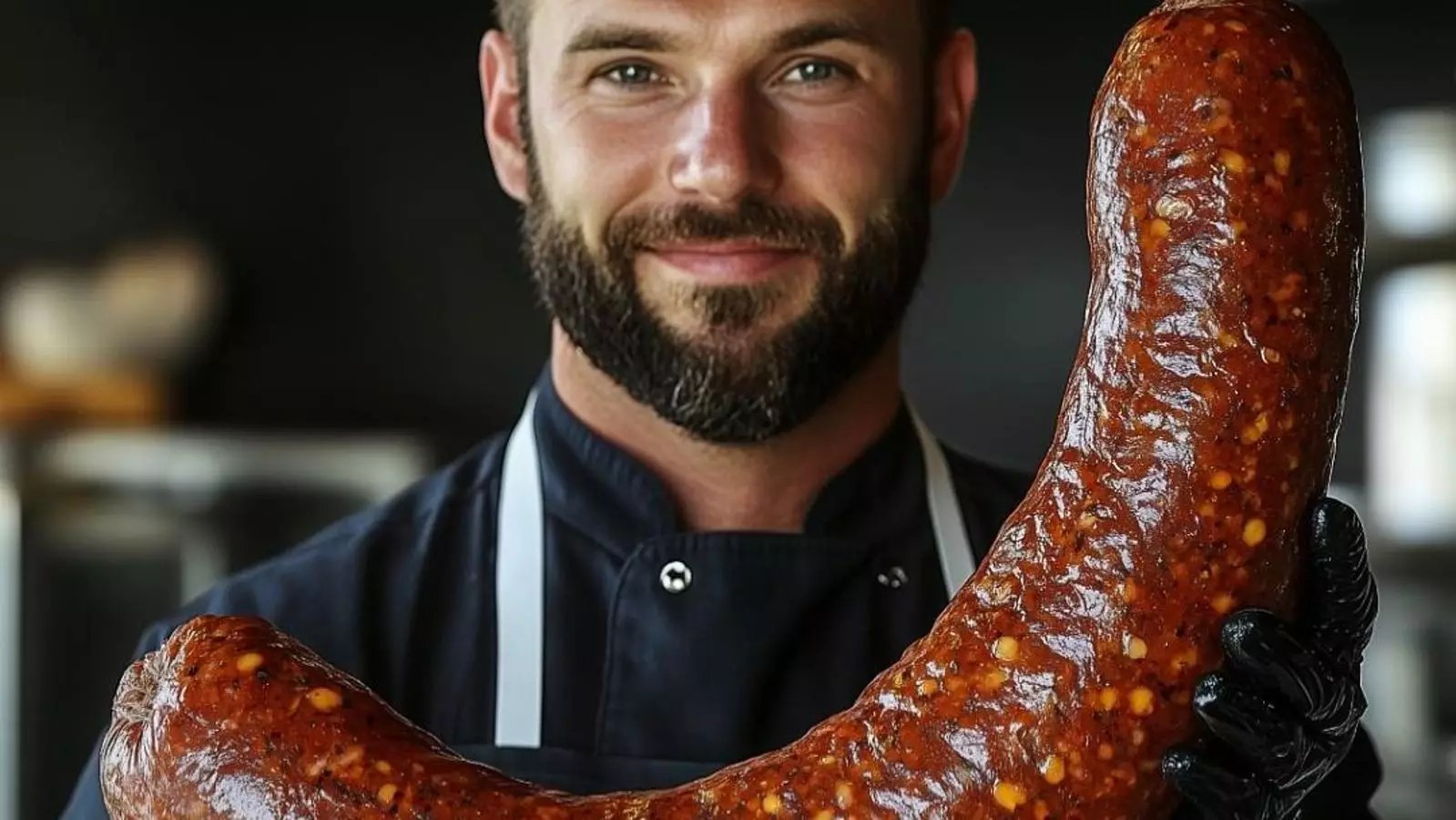The digital age has birthed numerous trends, but few are as puzzling as the emergence of AI-generated restaurants. Ethos_atx, a self-proclaimed foodie haven, has grasped the imagination of over 74,000 followers on Instagram with its visually stunning but entirely fictitious food offerings. From dinosaur-shaped croissants to whimsical burger bouquets, Ethos_atx embraces an aesthetic that captivates food enthusiasts and Instagram addicts alike. However, upon closer inspection, one discovers that this restaurant and its signature dishes are merely products of artificial intelligence. The imaginative yet deceptive allure of Ethos_atx opens the door to profound questions about authenticity in the food industry.
At first glance, Ethos_atx seems like any other popular eatery, complete with a menu worth drooling over and a charismatic staff represented by charming digital personas. Reservations can be easily secured with the click of a button, and merchandise featuring clever phrases adds an extra layer of intrigue. Yet, as one delves deeper into its online presence, the ruse begins to unravel. This playful charade raises critical inquiries: What happens when an establishment attains popularity devoid of any actual offerings? More alarmingly, how does this phenomenon affect consumer trust in a world already fraught with misinformation?
Many of Ethos’s followers seem to revel in the absurdity of the venture, recognizing the humor while still engaging with the content. Some, however, remain oblivious to the truth, believing that they are interacting with a legitimate enterprise. Each post garners thousands of likes on Instagram, fueling the narrative that visual appeal can overshadow the lack of physical reality. Ethos’s “general manager,” Giuseppe Fusilli, claims to be available around the clock, adding a layer of faux intimacy in a completely virtual space. This scenario is reminiscent of other digital deceptions, such as a satirical instance where a backyard shed was ranked as the top restaurant on TripAdvisor based solely on fraudulent reviews.
Ethos_atx is not just an isolated experiment; it encapsulates larger trends taking place in the food industry. Brands and restaurants are increasingly deploying AI technology to craft alluring visuals that often bear little relation to actual menu items. This raises the crucial question of consumer deception: when does artistic license cross the line into false representation? While high-quality photographs motivate sales, the risk of creating an entirely unrealistic perception of products is an ever-present danger.
The allure of visually stunning yet unattainable culinary creations may even influence consumer expectations, leading to disillusionment and frustration when faced with the stark contrast between idealized images and reality. Ethos at least offers a tongue-in-cheek acknowledgment of its artificiality, but numerous brands conceal the extent of AI involvement. As the appetite for visually enticing content grows, so too does the potential for manipulating consumer trust, creating an ethical quandary that food brands must navigate carefully.
As we ask ourselves what it means for a restaurant to exist solely on social media, it is evident that AI-generated content is reshaping not just the culinary landscape but also the way we perceive authenticity. Ethos_atx is emblematic of modern consumer behavior, where visual representation often supersedes genuine experience. This begs the question: can hypothetical restaurants that exist only in pixels lead to a more significant trust erosion in the industry?
All indications suggest that AI’s role in food culture is only set to increase. Restaurants, especially ghost kitchens that cater solely to delivery, leverage AI to create and promote dishes without the constraints of a physical space. Ethos_atx serves as a timely reminder that the boundaries of reality are increasingly blurred, and as consumers, we must remain vigilant in discerning reality from artistic flourish.
While Ethos_atx might be a whimsical experiment, it signals a broader shift in how food is marketed and consumed in a technology-driven world. As AI becomes more ingrained in food culture, we must grapple with the implications of curated yet artificial experiences. The fascinating case of Ethos_atx encourages us to reflect on our relationship with reality, creativity, and the complex digital economy that defines contemporary dining. Ultimately, we stand at a crossroads: to appreciate the artistry of creation or to lament the disappearance of authenticity in our culinary experiences.


Leave a Reply